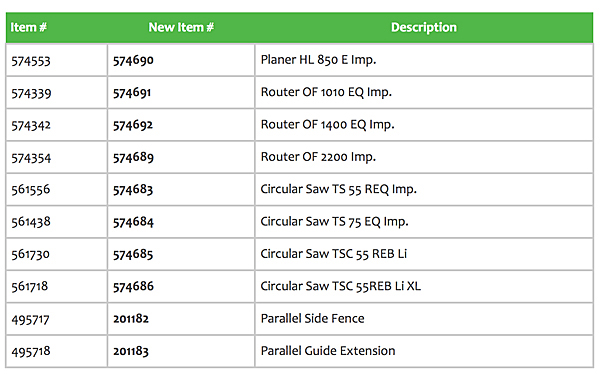
Here’s a quick math quiz: Is 3mm more or less than 1/8 in.? Will a blade depth setting of 25mm cut through a piece of 3/4-in. plywood? What’s the metric equivalent of 1/64-in.?
Festool tool users in North America have been solving math problems like these for decades, in order to adapt their building methods to Festool’s metric-based tool scales. It’s been worth the transition to benefit from Festool’s German-made, premium quality offerings. But not all North American customers have appreciated the need to “think metric” in a mostly Imperial measuring environment.
Maybe you are one of those folks, and if so, here’s some good news: just last month, Festool launched several popular tools in the North American market that are redesigned with Imperial depth scales. Starting July 5, Festool’s TS 55 and 75 track saws, three OF plunge router models and the HL 850 Planer can now be purchased with fractional depth-of-cut scales. Metric tool scales won’t have to be an inconvenience anymore.
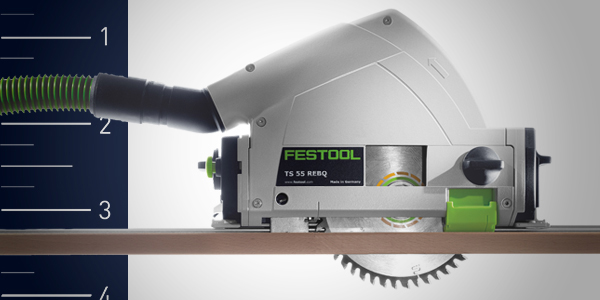
“Festool products have always been marketed in North America with metric scales, so this is a completely new venture to accommodate the American (tool user),” explains Rick Bush, Festool’s marketing product manager.
Track saws and routers are some of Festool’s more popular woodworking tools here, so the decision to switch to more familiar scales was based on practicality and a continuing desire to adapt to this marketplace, Bush says. And it wasn’t a decision Festool made lightly.
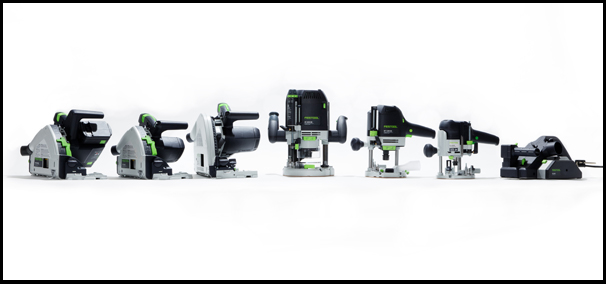
But why, you might wonder, did the company wait so long to offer Imperial versions here?
“As simple as the concept seems on the surface,” Bush says, “there is quite a bit that goes into making such a change. It affects the production of parts that are used all over the world.”
A number of years ago, Festool tested the waters by packaging a loose, adhesive-backed, Imperial scale with new metric-scale TS track saws. If you didn’t want to use the metric, there was an option to just cover it over with a more familiar inch-based sticker. But, the outcome of that effort was mixed. Bush says many customers weren’t aware of the sticker, and others couldn’t get it placed accurately on the tool.
“We needed to come up with a more appropriate and permanent solution,” he adds.
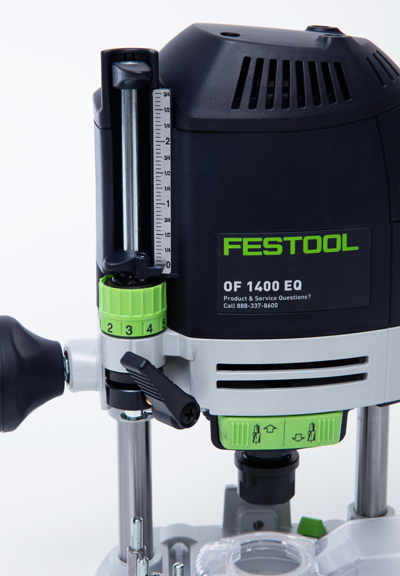
That meant going back to the drawing board to manufacture new parts — no sticker solutions this time. In the case of the TS saw line, for instance, the arched housing is screen printed with the alternate scale — just like metric versions of the tool are.
However, while track saws, routers and planers are making the switch to fractions, not all of the company’s product line will be “going Imperial.” The Domino loose tenon machine will continue as metric only. “It’s still best suited to work with metric, as the Domino tenons and cutters are produced to metric dimensions,” Bush says.
Other tools without depth-of-cut scales, such as jigsaws, will remain unchanged, too. So will saw blades, bits and cutters, which are sized metrically. Some accessories, like Parallel Side Fences and Guide Extensions, will be offered in either metric or Imperial versions. That way, users can buy the version that adapts best to their needs.
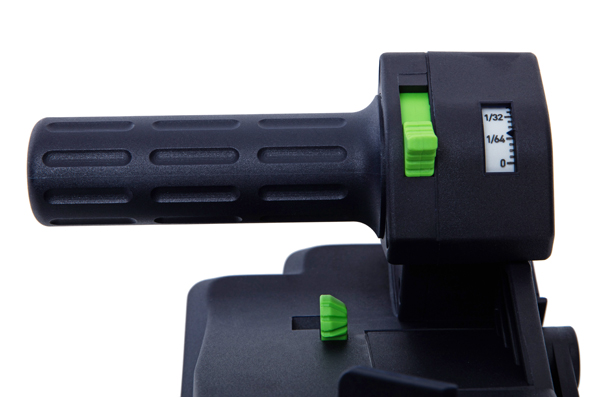
In terms of current availability, Bush reports that Festool dealers in the U.S. still have the option to order metric versions of TS track saws, OF routers and the HL 850 Planer until inventories are depleted. But after that, there will just be Imperial versions (metric tools will continue to be offered outside North America). He says feedback from dealers about the switch has been positive. “They’re glad to see Festool is making this adaptation.”
And customers will appreciate that the change to Imperial scales doesn’t come with an added sticker price. Imperial or metric versions cost the same.
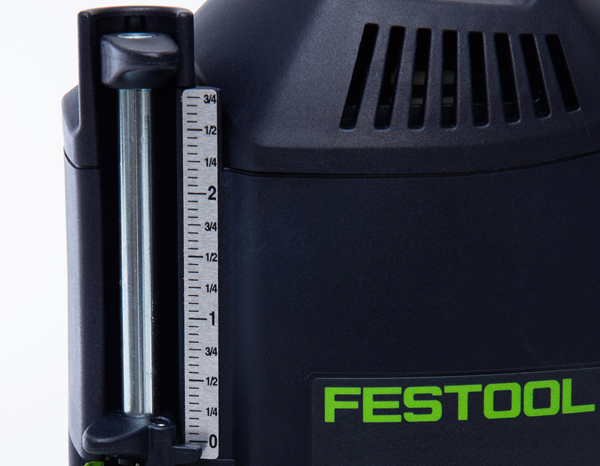
If you already own a metric tool, converting it to Imperial is possible. The modifications will cost around $75 USD or $85 CAD for track saws or planers, and that includes flat-rate shipping both ways. Due to complexity, these two tool types must be converted by Festool. For plunge routers, Festool will send the parts and instructions to customers free of charge to make the changeover themselves, because the switch isn’t difficult to do. Or, you can send your router to Festool for modification at the same $75 or $85 flat rate.
Despite these recent enhancements, one thing remains constant, Bush assures. Nothing changes in regard to the functionality or the tooling itself. Whether Imperial or metric, a Festool tool promises Festool quality.
“(We’re) always striving to make tools more intuitive and ambidextrous while providing the best performance results.”
Learn more about Festool’s switch to Imperial by clicking here.
